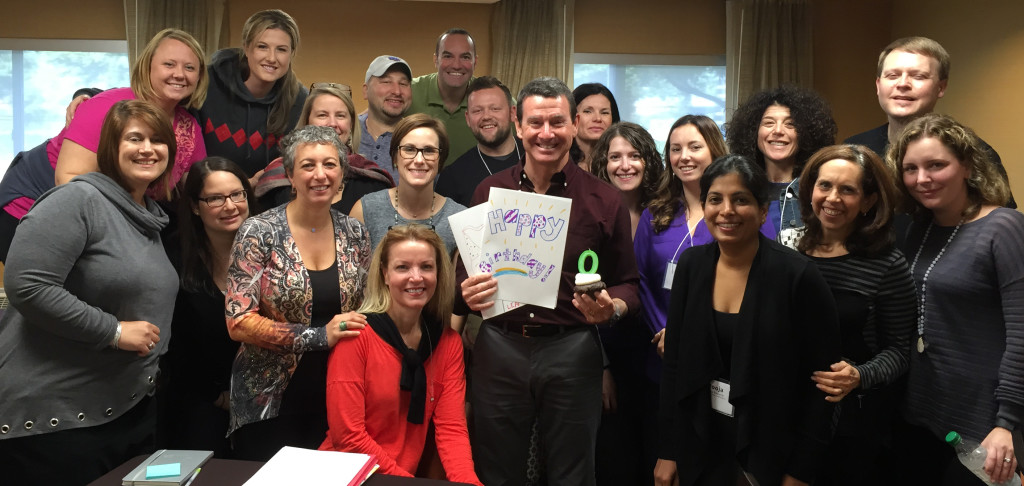Of the last 14 open executive director positions at Jewish Community Centers, nine were filled by current JCC staff, either an assistant executive director moving up in his or her own organization, or by one moving from another JCC, or an executive in a JCC in one city moving to another.
That seems like a normal succession, basically how things should operate in a healthy organizational network. But as we know, and as Dr. Hal M. Lewis recently pointed out in his recent eJewishPhilahthropy piece, “Long Before the C-Suite,” nonprofits have not been particularly attentive to how we address creating a vibrant pipeline of talent that is systemic to our organizations. In citing Bridgespan’s 2006 study, “The Nonprofit Sector’s Leadership Deficit,” he rightly says that we ignore addressing leadership at our own peril.
At JCC Association, we couldn’t agree more. Having worked with Lewis, who led two sessions at the last JCCs of North America Biennial in 2014, we understand exactly where he’s coming from. He points out that Bridgespan found that the nonprofit sector as a whole would likely need nearly 80,000 new leaders by 2016. Clearly that means we, as Jewish organizations, also need to pay attention. If we cannot cultivate a new generation’s passion for Jewish communal organizations and the communities they serve, we will have failed in even the most basic levels in planning for our shared future.
At JCC Association, we have long realized this, and through a variety of programs have focused intensely on leadership development, succession planning and most recently, Talent Management. This program, which began as a pilot in 2014 with nine JCCs, is just entering its second year and has already worked with more than 200 employees. It looks across positions at a JCC, from the most entry level on through the C-suite – to look at how the JCC can best attract, educate and retain top talent. The program guides supervisors along with those being supervised, in looking at how employees can best fulfill their potential within the organization. It allows departmental managers to pinpoint skills and aptitudes in their staff, and provide support to create a vibrant workforce while identifying future leaders within it.
Part of the Talent Management program includes LEAP (Leadership Enrichment and Advancement Program), which identifies high potential employees at JCCs and includes a 12-month program of learning activities, webinars, readings, small work groups and two LEAP Summits for in person learning sessions. We have identified 22 self-dubbed LEAPsters to date, who have enthusiastically embraced the program.
And with good reason. As one participant put it, “The LEAP program has really opened my eyes to areas of strength I possess and has encouraged me to continue developing myself as leader and all-around advocate for myself and others.”
We have ample evidence that JCC Association’s past training programs, focusing on both professional development and succession, have been well worth the effort.
Our Jewish Experiential Leadership Institute (JELI), run in conjunction with the Jewish Theological Seminary, is an online and in-person program designed to foster “leadership through a Jewish lens” in JCC professionals. Through it, we have seen 50 percent growth in promotions, additional job responsibilities and in the case of three participants, advancement to executive director positions.
Eliza Millman, who has forged a robust career in the JCC Movement, is a standout example of just what this kind of early investment in a career can look like. A recipient of a JCC Association graduate scholarship and a participant in our Middle Management Training Program (MMTP) seven years ago, she has progressed in her career from working as a camp counselor at the JCC of Greater Washington, where she later was an intern, to serving as director of special projects at the JCC of Metrowest in West Orange, N.J. Today she is the chief operating officer of JCC Rockland in West Nyack, N.Y.
“These programs make you feel more relevant and that you are connected to others also being groomed by the movement,” says Millman, noting that there is value beyond the workshops and training, and that the social and networking pieces are important as well.
“It feels like a seal of approval, and because of that, you want to give back,” she says. Most of her MMTP cohort has stayed in the field, she says, and more than 40 percent have moved up the ladder in their careers.
Talent Management is broader than leadership development. What we want to create within each organization through the program is an environment where we see the positive impact of engaging employees in their own professional development. In turn, this gives the JCC an incredible advantage at retaining staff, who feel more engaged in the JCC’s mission. They have better relationships with one another, with their supervisors and with the organization.
It really shouldn’t come as a surprise that investing in talent yields better results, and that more of us should be doing it. What may sound novel to the broader Jewish community is that JCC Association has been focused on this for years. As we intensify our approach through programs such as Talent Management, we expect to yield better performance in years to come—both for the JCC, and the people who ultimately will steer them.
Joy Brand-Richardson is associate vice president and director of training and professional leadership at JCC Association. This piece was originally posted on eJewishPhilanthropy.com on Nov. 19, 2015.
